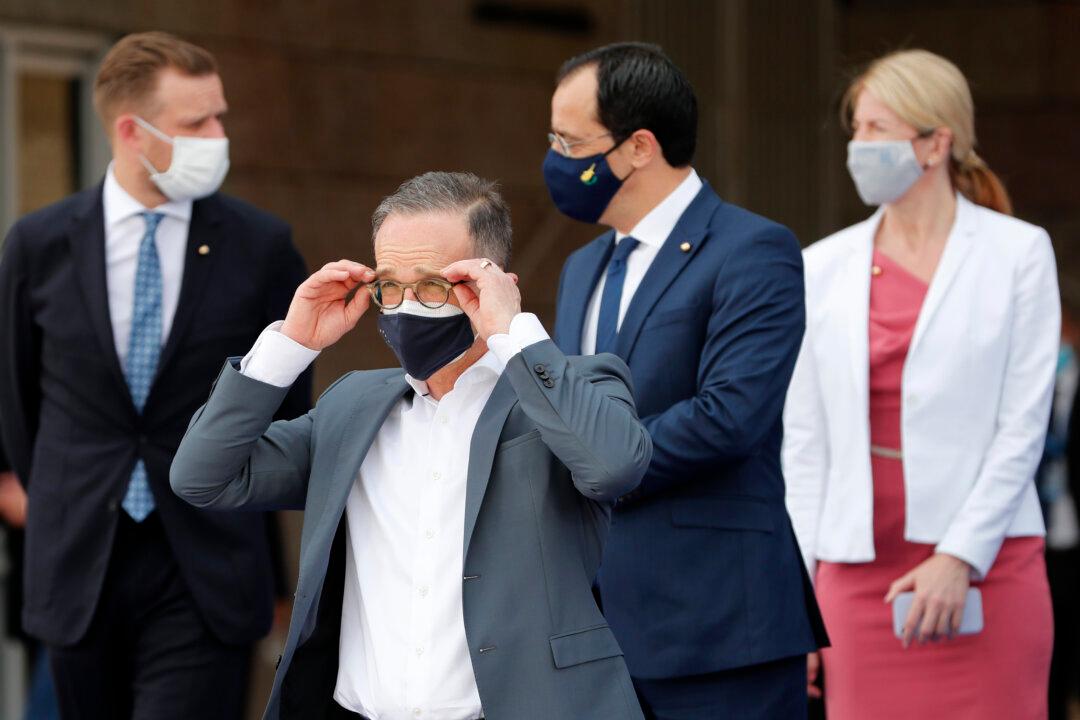German Foreign Minister Heiko Maas warned of “a long and severe spiral of sanctions” as EU foreign ministers met on Thursday to discuss further sanctions against Belarus.
The Belarusian regime sparked strong reactions from the West after it intercepted a Ryanair flight flying over its airspace on Sunday and arrested two people onboard—26-year-old opposition journalist Roman Protasevich, and his 23-year-old Russian girlfriend Sofia Sapega.





